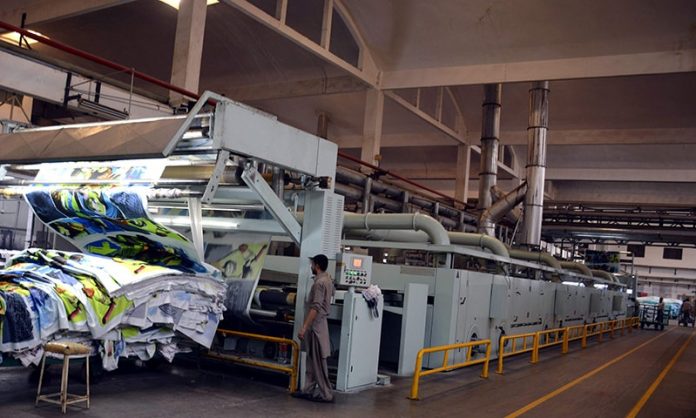The National Assembly’s Standing Committee on Finance on Wednesday has backed the proposal presented by the textile sector to restructure bank loans of ailing units to help their revival.
Members of the textile sector informed the committee that the revival of sick units will contribute $1b in foreign exchange and create as many as 5m jobs.
Committee chairman Qaiser Ahmed Sheikh highlighted that exports had decreased from $25b to $20b in the last four years and the downward trend would continue if problem areas are not addressed.
The textile sector pinpointed high cost of LNG, non-clearance of refunds and government borrowing by banks as root causes leading to a decline in exports.
Committee members observed that the government resorts to commercial borrowing from banks whch restricts funds available to the private sector as loans.
The exports from Bangladesh have increased from $24bn to $34bn, it was informed.
Federal Board of Revenue (FBR) Chairman Dr Muhammad Irshad said the government is restructuring the regulatory duties (RDs) system with due consultation with the stakeholders following complaints that RDs on steel and paper items were rendering them uncompetitive.
While taking up the matter of import and manufacturing of phthalic anhydride, Sheikh left the chair for Daniyal Aziz to avoid conflict of interest. Sheikh is one of the stakeholders in the case.The case pertains to several sectors demanding reduction of import duties on phthalic anhydride, a basic raw material for plastic products, from 11pc to 5pc.
Anjum Nisar, who represented the only phthalic anhydride producer in the country, said the import duty should be 16pc instead of 11pc, as imports cause damage to his company’s investments.
Nisar, however, was unable to convince the different political parties regarding production capacity and duty structures.
Mustafa Mehmood of PPP objected to the increase in import duty on phthalic anhydride fearing that this would create a monopoly, distorting the country’s industrial base.




